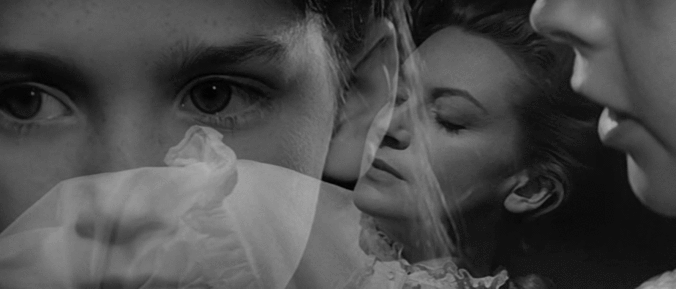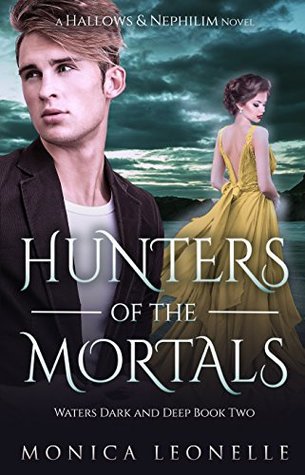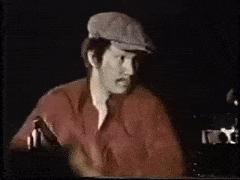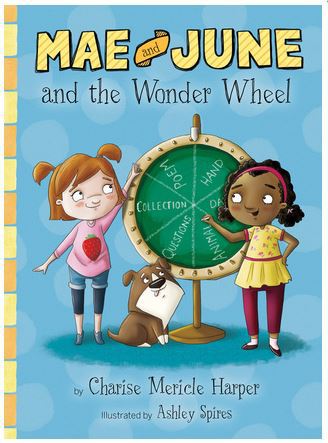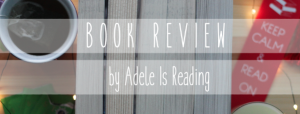Godblind is set to be one of the biggest fantasy debuts of 2017. Petros reviewed it on Booknest, calling it GDAF ‘as grimdark as it gets’ and ‘may as well be the very first novel classified as such.’ And in my review, I said, that after reading it I felt like I’d gone ‘12 rounds with a grimdark heavyweight, not a debut tyro. I hurt, I’m tired, I’m scared, I want a hug – but I want more!’
Needless to say, Godblind isn’t pulling any punches.
To celebrate the release of Godblind, Anna was kind enough to answer a few questions about the story, as something of a follow-up to a previous interview.
 Anna Stephens, NOT to be allowed near hammers at ANY time.
Anna Stephens, NOT to be allowed near hammers at ANY time.
Hi Anna! For those that have yet to come across you, in 50 words or less, introduce yourself.
I’m a lover of all things fantasy and speculative, whether that’s books, movies, TV series or the inside of my own head. I’ve written all my life, and always dreamt of being published. I’m a (currently lapsed) martial artist and a literature graduate. And I fight crime. Maybe.
Now that we’ve mentioned it, tell us a little bit about your debut fantasy novel ‘Godblind’. Channel your inner Jordan Belfort/Leo DiCaprio, sell me this pen…err, book!
Godblind is an epic grimdark fantasy novel set in the country of Rilpor, home to a peaceful-ish nation and their joyful, loving Gods of Light. Rilpor’s border is on the Gilgoras Mountains, which are home to the vicious, bloodthirsty Mireces, who worship the Gods of Blood – the Red Gods. The Mireces’ destiny is to invade Rilpor, destroy the Gods of Light, and subjugate its people.
Godblind is the story of the small bands of men and women – civilians and soldiers – tasked with saving Rilpor, preventing deicide, and stopping the cataclysm that Dom Templeson, calestar and prophet, has already foreseen.
Godblind – why THIS story?
This question amuses me no end.
THIS was not the story, not for many years. Godblind is a newly-minted teenager – a 13-year old novel with a snotty nose and a chip on its shoulder. Godblind’s early days were as an imitation heroic/high fantasy novel in which brave and noble warriors rescued beautiful, resourceful but ultimately helpless princesses from evil men and saved the world.
Gods, the thought makes me cringe.
99% of the Godblind we’re talking about today is different to the Godblind of 2004. There is only one theme (aside from character and place names) that runs through today’s Godblind that existed back then – that women were fighters.
Now bear with me, because I know that goes against the “helpless princess” theme I’ve just mentioned. The helpless princess in question – and this will no doubt astonish anyone who’s read the book – was Rillirin.
Rillirin was princess of Rilpor who wanted nothing more than to be a warrior like the noble men guarding the western border from the Mireces, but this was not allowed, for a princess or for a woman. That was the basis for nearly everything, that rebellion against the idea women had to be protected instead of protectors. In today’s Godblind, some women fight (and fight bloody well), but they’re oddities, feral, savage women – at least to the rest of society. To the men they fight alongside, they’re normal people with a very special skill set.
My conviction that women were, could be, and should be, warriors, has never wavered. As Kameron Hurley said in her Hugo-winning essay: We have always fought.
So it was always a book in which women were warriors, but over the years that was tempered when I delved deeper into my world building and introduced politics and stereotypes and customs that ‘proved’ women shouldn’t fight.
I wanted to highlight my female warriors – Dalli, Sarilla, Tara, Rillirin, even Lanta to a degree, even Gilda – against that backdrop, to show how absurd it was that they were expected to wear clinging, restrictive long skirts and wait at home for men to save them – or rape them – or kill them.
So when you ask why THIS story, you get a much longer answer than you asked for!
Godblind is EPIC – gods of blood and light, regicide and treason, sacrifice and sacrilege. It’s the stuff of GRRM and John Gwynne, especially when you consider the size of the cast involved. Where did the ideas for all of these diverse characters come from? And, if you had to pick one, who are you most like?
It’s a big cast, isn’t it? It’s strange how things evolve. 2004 Godblind had four characters – Rillirin, Dom, Lim and Rivil. Doesn’t pass the Bechdel test. Though I’m not even sure I knew what that was in 2004 – I was just writing in the style of most of the books I read.
It became a really organic process; Lanta and Liris came next, then Sarilla, then Ash and Crys, and Crys was a turning point for me. We’d got the Wolves and the Mireces and the mad prince Rivil – more than enough characters, more than enough ‘jobs’. But Crys was a professional soldier and that opened up a third stream of characterisation.
After that I got a little trigger-happy with characters until I ended up with something ridiculous like 20 POV characters. Then it was a case of paring them back down again to the ones whose actions and story arcs really set the plot on fire.
As for who I’m most like? All of them! I’d say there’s probably a trait in all of them that’s in me, or a trait that I’d love to have. Crys’s heroism – don’t have, but want. Dom’s aversion to accepting what can’t be changed – I do have that, I want everything to go my way! Tara … ok, I’m probably most like Tara – don’t really take enough things seriously, a casual disregard for doing as I’m told, but will go to the wall for friends and loved ones.
And a bit of Hallos – insatiable curiosity. But without the beard.
Godblind is grimdark. It’s fantasy, but it really is grimdark, at least in my opinion (and now, Petros’!). Did you set you to write a grimdark story, or did it write itself in that way? Were you inspired by any grimdark authors/books?
I definitely didn’t set out to write it like that. As I mentioned, my earliest intentions were to write heroic fantasy, but I was rubbish at it. Every time I rewrote it, characters became more human and less ideological. You can be heroic but morally ambiguous – look at Crys. Gambler, a prolific card cheat, but probably the most heroic character in Godblind.
I was thrilled when I started reading novels that were painted in shades of grey rather than black and white. They just made more sense to me, and I began to see that that was where my writing was heading, so it was great to have that affirmation that books like mine could become published.
I don’t really go for labels – people say Robin Hobb is grimdark and I just say she’s f**king amazing.
I’m inspired by excellent writing and believable characters, no matter the genre. One of my all time favourite books is Green River Rising by Tim Willocks – it’s about a Texas prison riot. It’s not fantasy but my god you’d called it grimdark these days. But then I adore Lord of the Rings too. Shogun, by James Clavell. Here be Dragons, by Sharon Penman.
For me it’s the craft, not the genre. The characters, not the labels.
If you could change anything, anything at all, before the book is released, would you?
AS: It could be better. Even now, after all these rewrites, despite my agent and editor being thrilled with the final result, I think it could be better. But that’s because I don’t think any author anywhere is ever happy with their work, not 100%.
But that drives me to make sure that books 2 and 3 are better. Or at least, I’ll try to make them better.
Before we finish up, I need to ask – how does it feel to be one of two leading ladies (one of two Anna’s in fact) of grimdark in 2017? I for one am really looking forward to seeing more female authors on the grimdark scene.
It’s a very strange, very surreal experience, personally speaking. I’ve said this a few times before – I didn’t realise I was writing grimdark until I was told I was. That’s not because I don’t read grimdark, I do, I just never put myself in that category. For me, I wrote characters who were real, in every possible sense of the word. None of us are all good or all bad; it was really important for me to get that across.
As for being one of the two Annas (the dark-haired, dark-eyed, published by Harper Voyager, books coming out in June Annas – I often wonder myself if we’re not actually the same person) I feel massively privileged and lucky to be where I am. Wanting to be a published writer and being a published writer are two entirely different things. I spent years dreaming of it, and now that it’s happened, I intend to enjoy every second.
While drafting the sequel, of course…
And yes, I think we do need more women writing novels that are classed as epic or grimdark, that use those elements of moral ambiguity and don’t shy away from war or battle.
I’d like to think that the male reviewers who’ve read Godblind so far don’t think “she did well for a woman”, but respect the work for what it is. And I hope there are lots more women like me with burning stories to tell who just get out there and do it.
And finally, last question! In 10 years’ time what’s the one thing that you want readers to remember from Godblind?
The characters. Their growth, their journeys, what they did for each other.
Thanks Anna! I will certainly remember what the characters did for each other, but also, what they DID to each other…it’s been hammered into my memories (once you read Godblind, you’ll know what I mean).

Anna Stephens is a UK-based author of gritty epic fantasy. She has a BA (Hons) in Literature from the Open University and has wanted to be a writer for as long as she can remember. She much prefers the worlds she makes up to the real thing, even if most of her characters meet sticky ends.
Anna lives with her husband, a huge book, music and movie collection, and no pets. She intends to remedy this lack of furry friends as soon as fame and fortune strike.
Anna’s debut novel, Godblind, is published through Harper Voyager, and is available now – you can buy it here (US) or here (UK). The sequels are expected in 2018 and 2019.
Share this: